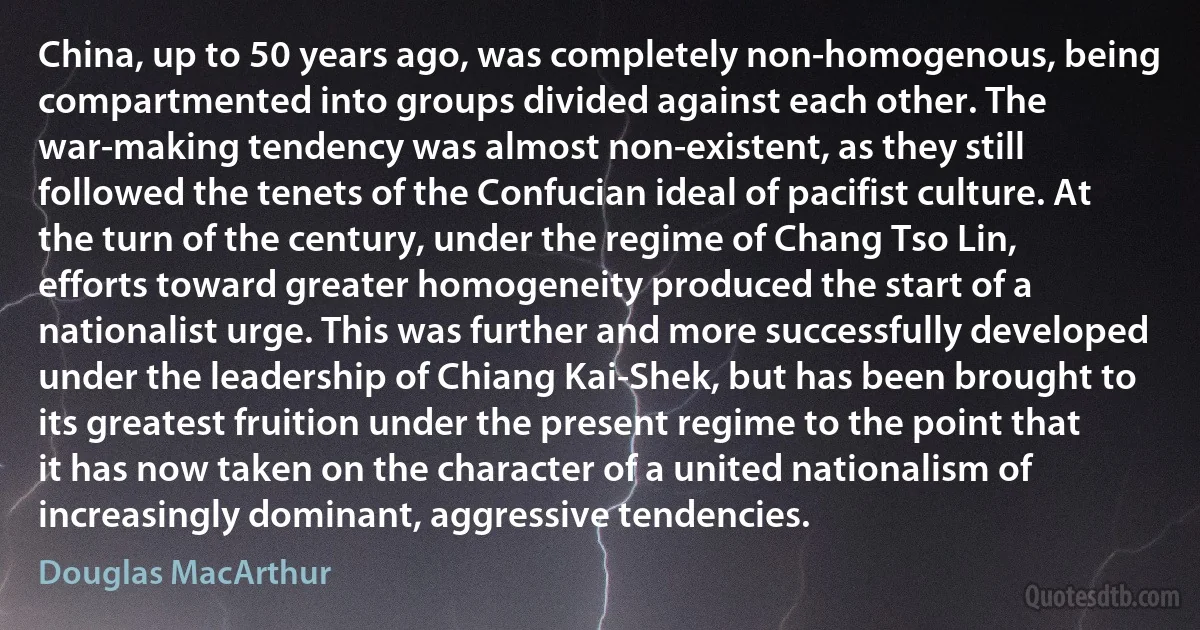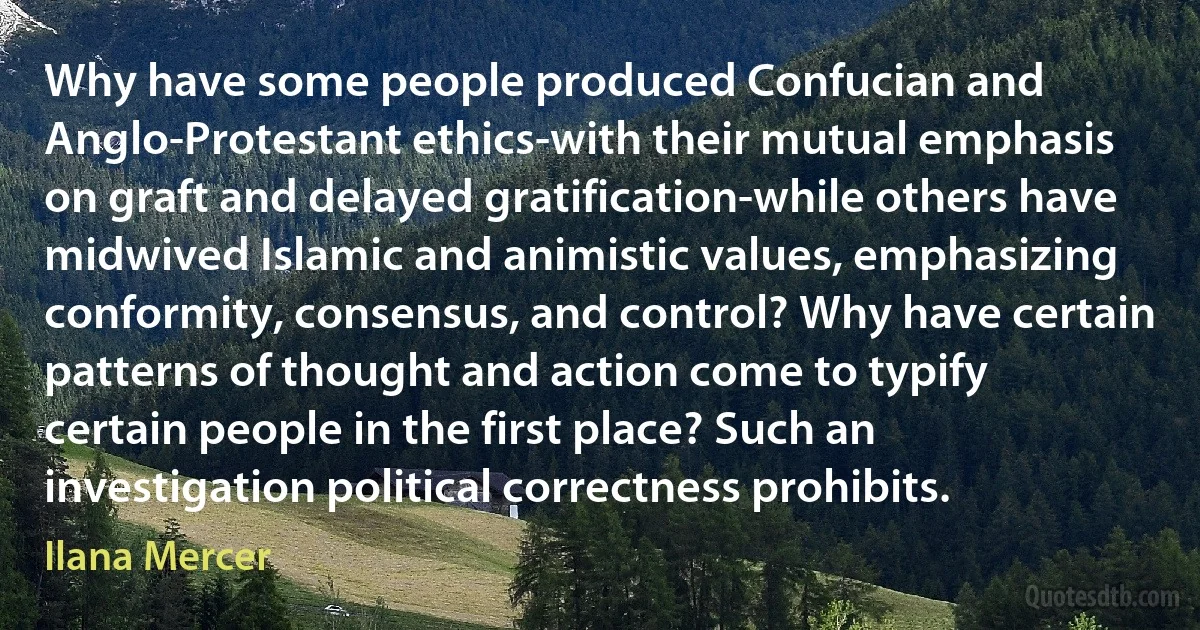Confucian Quotes
The Confucian aspirant to office, stemming from the old tradition, could hardly help viewing a specialized, professional training of European stamp as anything but a conditioning in the dirtiest Philistinism. ... The fundamental assertion, ‘a cultured man is not a tool' meant that he was an end in himself and not just a means for a specified useful purpose.

Max Weber
For the Confucian, the specialistic expert could not be raised to truly positive dignity, no mater what his social usefulness. The decisive factor was that the "cultured man" (gentleman) was "not a tool"; that is, in his adjustment to the world and in his self-perfection he was an end unto himself, not a means for any functional end. This core of Confucian ethics rejected professional specialization, modern expert bureaucracy, and special training; above all, it rejected training in economics for the pursuit of profit.

Max Weber
The Chinese language lacked terms capable of conveying Buddhist meanings; and not until the fifth century did a handful of scholars become sufficiently at home in both Chinese and Indian learning to be able to translate Buddhist texts into Chinese with a modicum of adequacy. ...the novel and initially alien outlook of the Indian faith had somehow to come to terms with the various strands already woven into Chinese culture, ranging... from Confucian and Taoist learning to local sub-literate peasant magic. ...while accommodating themselves to older Chinese expectations, Buddhist doctrines and practices simultaneously widened and redefined traditional Chinese sensibilities and aspirations.

William H. McNeill
Traditional Chinese art looked at the Earth from a Confucian mountain top; Japanese art looked closely around screens; Italian Renaissance art surveyed conquered nature through the window or door-frame of a palace. For the Cro-Magnons, space is a metaphysical arena of continually intermittent appearances and disappearances.

John Berger
...[T]he Confucian way of learning is that in order to ascend to lofty heights one must begin with the lowly, to travel afar one must begin with what is near. Indeed, to begin from the lowly and near certainly is a slow process. But apart from it, whence comes the lofty and distant? In applying one's efforts to gradual advancement one attain what is lofty and distant without parting from what is lowly and near; it is in this that it is different from Buddhist and Daoist learning.

Yi Hwang
Traditionally, every Chinese was Confucian in ethics and public life, Taoist in private life and hygiene, and Buddhist at the time of death, with a healthy dash of shamanistic folk religion thrown in along the way. As someone has put the point: Every Chinese wears a Confucian hat, Taoist robes, and Buddhist sandals. In Japan Shinto was added to the mix.

Huston Smith
Korean schoolchildren in North and South learn that Japan invaded their fiercely patriotic country in 1905, spent forty years trying to destroy its language and culture, and withdrew without having made any significant headway. This version of history is just as uncritically accepted by most foreigners who write about Korea. Yet the truth is more complex. For much of the country's long history its northern border was fluid and the national identities of literate Koreans and Chinese mutually indistinguishable. Believing their civilization to have been founded by a Chinese sage in China's image, educated Koreans subscribed to a Confucian worldview that posited their country in a position of permanent subservience to the Middle Kingdom. Even when Korea isolated itself from the mainland in the seventeenth century, it did so in the conviction that it was guarding Chinese tradition better than the Chinese themselves. For all their xenophobia, the Koreans were no nationalists.

Brian Reynolds Myers


